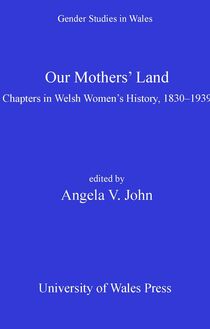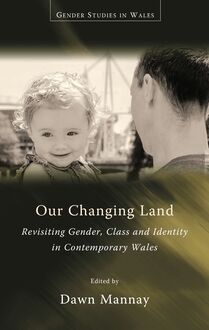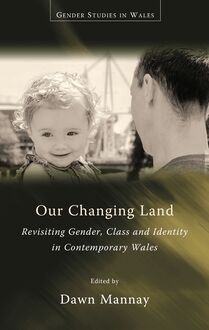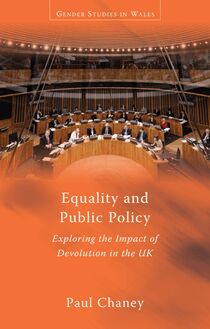Gender and Social Justice in Wales , livre ebook
282
pages
English
Ebooks
2010
Obtenez un accès à la bibliothèque pour le consulter en ligne En savoir plus
Découvre YouScribe en t'inscrivant gratuitement
Découvre YouScribe en t'inscrivant gratuitement
282
pages
English
Ebooks
2010
Obtenez un accès à la bibliothèque pour le consulter en ligne En savoir plus
Publié par
Date de parution
15 juin 2010
Nombre de lectures
0
EAN13
9780708322697
Langue
English
Poids de l'ouvrage
3 Mo
Part I: Gender, political representation and social justice Chapter 1. Setting the scene: devolution, gender politics and social justice, Nickie Charles Chapter 2. Gender mainstreaming and public policy in post-devolution Wales, Paul Chaney Chapter 3. Gender and political representation: views from the grassroots, Sandra Betts, Bangor University Part II: Social justice for women? Chapter 4. Devolution, gender and childcare: a distinctive agenda for Wales? Wendy Ball, Swansea University Chapter 5. Developing a domestic abuse strategy, Nickie Charles and Stephanie Jones, International College Wales Swansea Chapter 6. Mainstreaming Across the Equality Dimensions: Policy on Sexual Orientation in Wales, Alison Parken, Cardiff University Chapter 7. Making the world new for them: an exploration of women in power in the post-devolution Welsh education system, Sue Sanders, Chapter 8. Gendering housing policy, Susan Hutson and Tamsin Stirling Chapter 9. The material resources of older women in Wales and WAG policy responses, Vanessa Burholt, Swansea University Chapter 10. Devolution and Welsh language policy: a gender dimension? Charlotte Aull Davies Chapter 11. The future, Nickie Charles and Charlotte Aull Davies
Publié par
Date de parution
15 juin 2010
Nombre de lectures
0
EAN13
9780708322697
Langue
English
Poids de l'ouvrage
3 Mo














